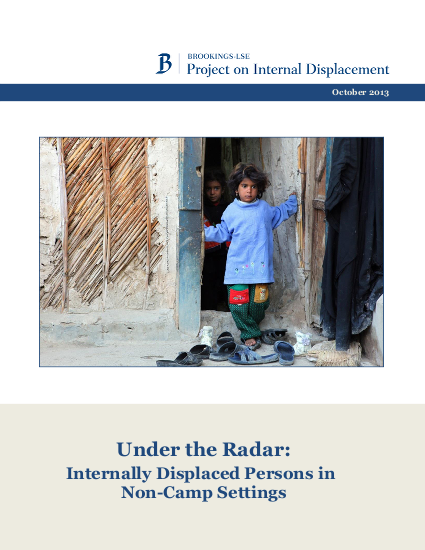
In spite of popular perceptions, most of the world’s internally displaced persons (IDPs) do not live in camps, but rather live dispersed in communities in a wide range of living situations. Sometimes they live with family or friends in nearby communities. Sometimes they rent accommodations in large cities. Sometimes they live in unoccupied buildings or pitch tents in empty lots. When people have to flee their homes because of conflict, widespread human rights violations or disasters, they tend to move to places where they have family or friends or to places which they think will be safer than their home communities. Sometimes displacement lasts only a few weeks or months and IDPs are able to cope with their own resources or the support of family and friends until they can return to their homes. However, all too often, displacement lasts longer than anticipated, resources run out and the capacity of host families is stretched. In some cases, governments and international organizations set up camps for IDPs where assistance can be provided and the impact on host communities minimized. While camps bring their own set of problems, they also usually bring public awareness and visibility to IDPs. It is hard to ignore the presence of IDPs when they live in large camps, such as in Darfur, northern Uganda or Pakistan. In contrast, IDPs who do not live in camps are often out of the public eye; it is more difficult to identify IDPs living dispersed in communities that are often poor themselves. It is also more difficult to develop appropriate policies to protect and assist them. IDPs living in non-camp settings are usually ‘under the radar.’
Resource collections
- UN Habitat - Urban Response Collection
- Urban Response - Urban Crisis Preparedness and Risk Reduction
- Urban Response Collection - Community Engagement and Social Cohesion
- Urban Response Collection - Economic Recovery
- Urban Response Collection - Environment and Climate Change
- Urban Response Collection - Housing, Land and Property
- Urban Response Collection - Urban Crisis Response, Recovery and Reconstruction
- Urban Response Collection - Urban Resilience